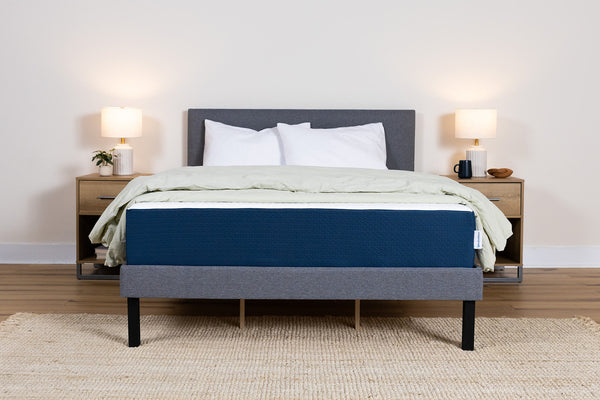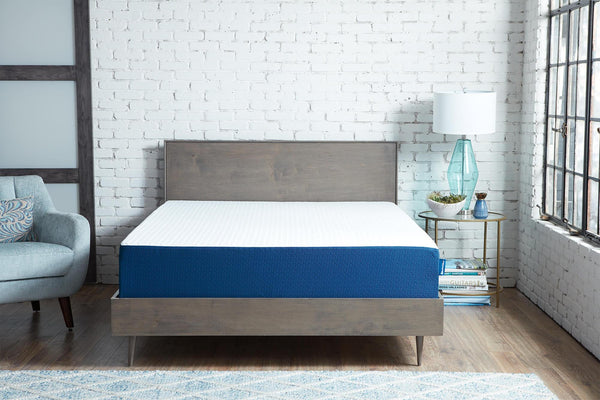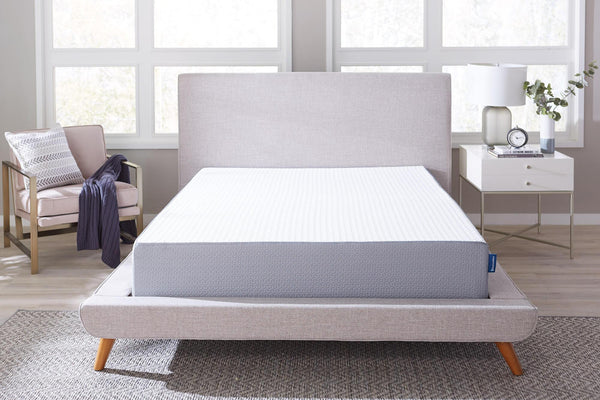How Much Sleep Does A College Student Need?
What They Need vs. What They Get

The importance of getting a proper amount of rest cannot be stressed enough. That being said, the Centers for Disease Control and Prevention (CDC) has reported that one third of Americans are not getting enough sleep. A significant part of this overwhelming number includes college students. Studies have shown that the majority of college students are not getting the rest they really need to perform their best both cognitively and socially. We are writing this blog to explore some of the factors preventing college students from getting enough sleep, how lack of sleep may affect their daily lives, and simple ways in which they can improve their sleep schedule.
Contents
The Struggle to Sleep
So how much sleep do we really need? Well the amount of sleep an individual needs largely depends on their age. Children and teens need more sleep than adults. The CDC recommends that teenagers get around 8-10 hours of sleep each night, while adults ages 18 to 60 years old need seven or more hours of sleep. That said, a typical college student would need around 7 to 9 hours of sleep every night. However, a study conducted by the University of Georgia found that the majority of college students only get 6-6.9 hours of sleep each night. While this may not seem like a significant sleep loss, a consistent lack of adequate sleep will eventually impact physical and mental health.
Teens need 8-10 hours of sleep a night😴 A well rested night starts with a supportive mattress.
— BedInABox.com (@BedInABox) February 29, 2024
Shop your teen's new mattress: https://t.co/7mc1kxYyaC pic.twitter.com/fFSbNt8IAO
The obvious question at hand is: Why are college students struggling to sleep? Well, the shift from high school to college can be more challenging than college students would expect. In high school, school starts and ends at the same time every day, meaning there is a set schedule or routine that teenage students follow every day. Additionally, students usually have parental reinforcement to enforce going to bed and waking up at a certain time to adhere to that schedule. That all changes when a student transitions to college. Class schedules vary from student to student. On some days, you may have classes that start early in the morning and on others, you might have classes that run late into the night. Add in heavy course loads, extracurriculars, socialization and the overwhelming combination of all of these is enough to throw off your entire sleep schedule.
The Negatives of a Poor Sleep Schedule
As mentioned before, sleep is extremely important when it comes to our health. So, when we fail to get sufficient sleep, it will take a noticeable toll. A lack of sleep can lead to reduced cognitive performance and social competence, and can even impact our decision-making abilities. Some negative effects of sleep loss for college students include:
- Lowered immune system
- Decreased coordination or athletic performance
- Increased weight gain
- Mental health issues, including anxiety & depression
These consequences of sleep loss can eventually impact a student’s overall academic performance. You may see that, despite your best efforts, your grades start to slip, which means it is time to improve your sleep hygiene.
Tips to Improve Your Sleep
Having good sleep hygiene will not only improve your health, but your academic performance should see improvements, as well. As difficult as it may seem to devote attention to your sleep schedule, there are steps you can take to improve your quality of sleep. Some tips to get you started include:
- Avoid caffeine & alcohol 3-4 hours before bedtime
- Limit use of electronics an hour before bed – the light from devices can make it more difficult for your body to perceive that it is night time
- Exercise regularly – just not right before bed. By maintaining a physically active routine, you should be able to fall asleep easier at night.
- Create a good sleeping environment – this means eliminating noises and distractions that will prevent you from getting adequate rest, including a poor quality bed. It is no secret that the mattresses typically supplied in dorm rooms do not provide substantial comfort or support. It may be worth buying a mattress or using a mattress topper that will promote better sleep, like the memory foam options we have available at BedInABox®. Not only do we have mattresses and toppers, but our pillows and linens will help you make your sleep environment feel just like home.
- Maintain a regular sleep schedule – try to get to bed around the same time every night, and wake up at a similar time every morning
Rise & shine. #backtoschool
— BedInABox.com (@BedInABox) August 29, 2023
Make this school year your best slept. Good sleep doesn't just improve mood, it also fosters focus, health, and academic success.
Shop now: https://t.co/7mc1kxYyaC pic.twitter.com/O2oPPH5EYm
College can be overwhelming and intense, so unfortunately sleep sometimes gets put on the backburner, making lack of sleep a pretty common issue across campuses. However, there are simple ways for students to address and rectify this to get their sleep back on track. A BedInABox® mattress designed to enhance overall sleep quality can be just the start. If you or your student is struggling to get the necessary amount of sleep, try tracking your sleep patterns and applying some of our suggestions so you can get the rest you need and deserve.
Complete your sleep setup with savings on mattresses, bundles, adjustable beds and other sleep accessories during our Black Friday Sale.


